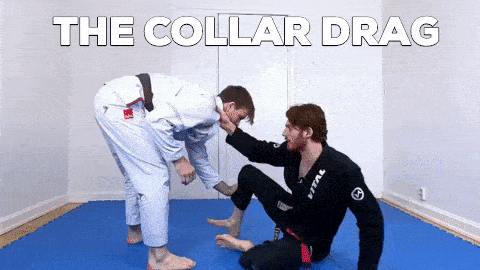
The collar drag is one of the fastest, simplest and yet most effective ways to reverse positions on the ground.
This is a very versatile move: it’s a sweep when performed from the guard, and it’s a takedown when performed on the feet. And this technique been proven in many world championship matches.
All you need is a grip on your opponent’s cross collar, a bit of distance, and the knowledge of what to do next…
How to Do the Collar Drag (Video)
Here’s a new video I just released on Youtube with Jon Thomas (analytical BJJ black belt extraordinaire) where he breaks down the collar drag for you into easy to follow steps…
How to Do the Collar Drag (Text and Pictures)
If you’re at work and your boss doesn’t like you watching jiu-jitsu videos then don’t worry, I’ve got you covered.
Here’s the very same technique in text and picture format…
1, Get the Cross Collar Grip
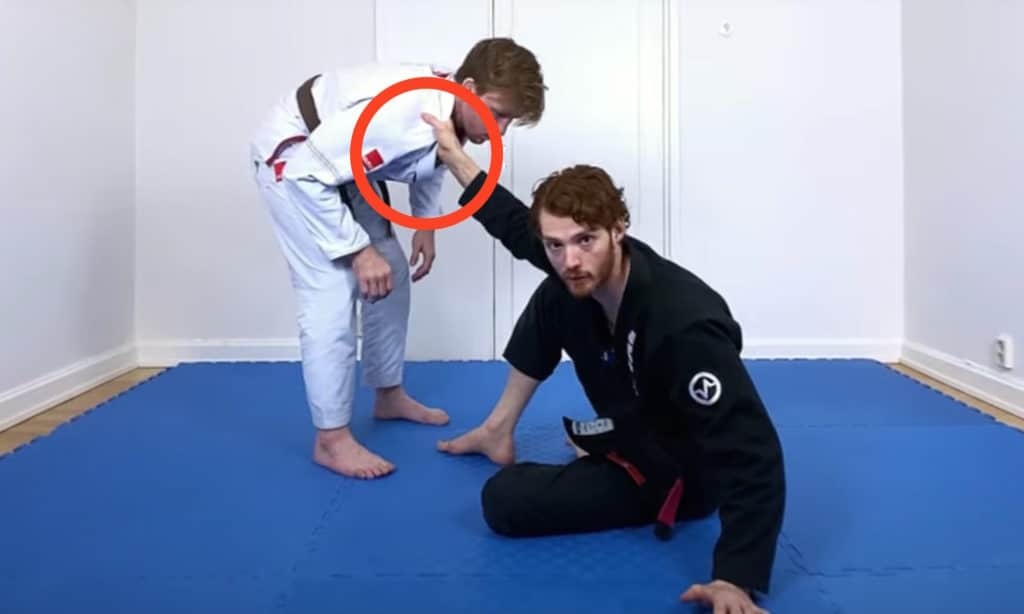
When you’re engaging an opponent from a distance, before a proper guard has been established, the person who wins the initial gripfight has a HUGE advantage.
In this scenario you’ve managed to establish a cross collar grip.
It works both ways but let’s assume that your right hand is gripping his right collar with your thumb up and your fingers inside his lapel..
You can definitely use this cross collar grip to pull him into your guard and establish other grips, but you can also attack directly.
In this technique we’re using the second option – direct attack – to quickly reverse positions and get to the top.
2, Prepare to Block His Far Leg
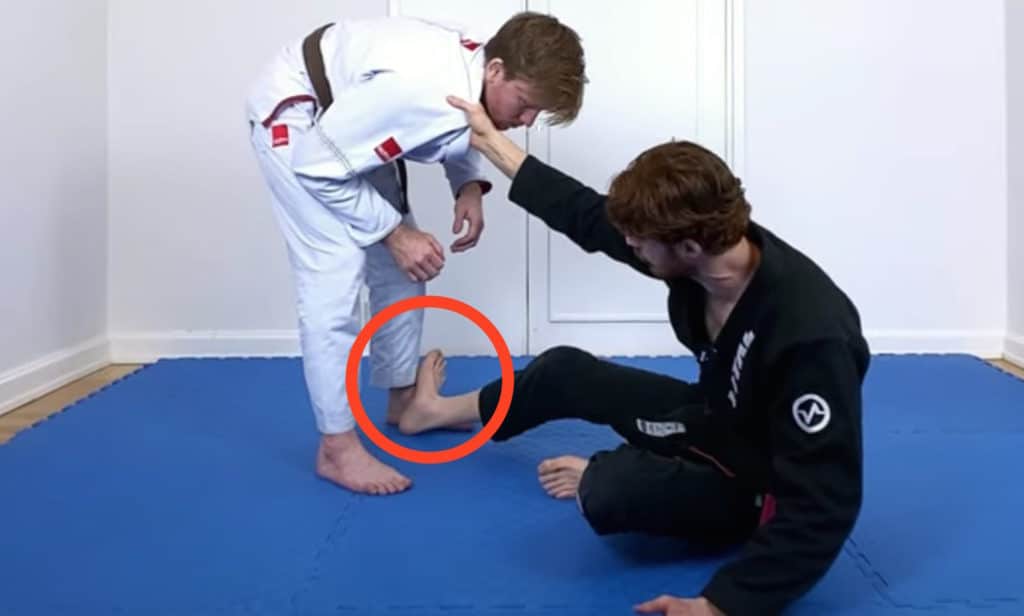
When you’re doing the collar drag at speed you’re going to try to block his left shin or instep with the bottom of your right foot. This trips him forward and makes it much harder for him to keep his balance.
For training, and sometimes in sparring, your foot will actually go between his legs. That’s not as efficient as blocking the shin, but it also works.
Note that you’re NOT going to put your foot in front of his shin before you start the main attack because that’s too telegraphic. The reality is that you’re only going to block his shin during stages 3 and 4 (which come very close together).
Watch the video above or check out the animated GIF in the article to see the timing of the foot blocking the shin.
3, Post on Hand and Bring Your Upper Body Closer
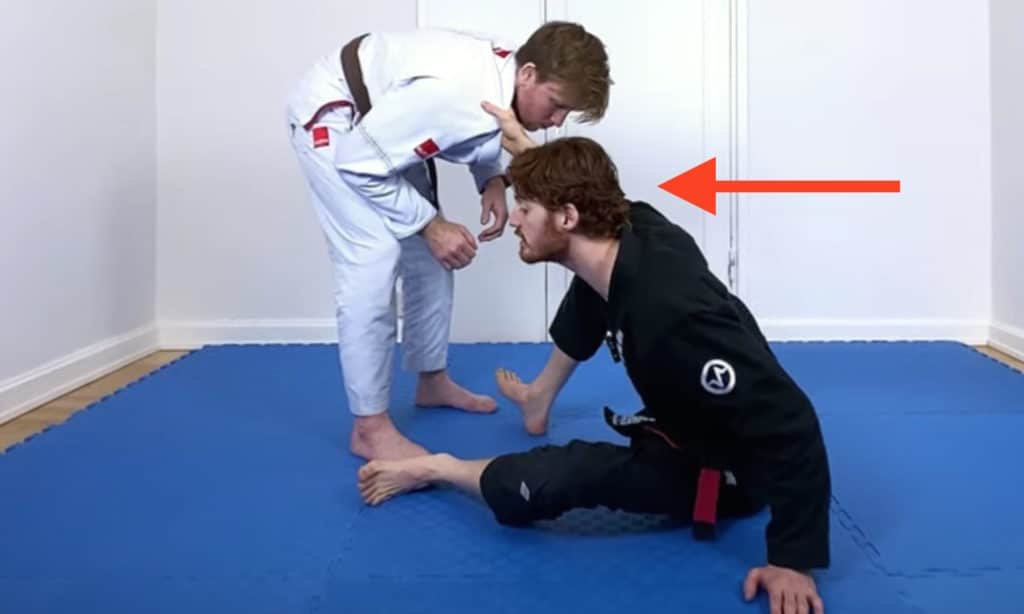
Steps 3 and 4 blend together as one smooth movement (along with kicking his foot out if that’s what you choose to do) but they’re shown here separately for clarity.
Start posting on your free (left) hand and rocking your upper body weight forward.
It’s important to note that you’re NOT headbutting his knee or his thigh in this movement; instead you’re propelling yourself to the OUTSIDE of his leg.
4, Scoot Hips Forward and Pull Him Past You
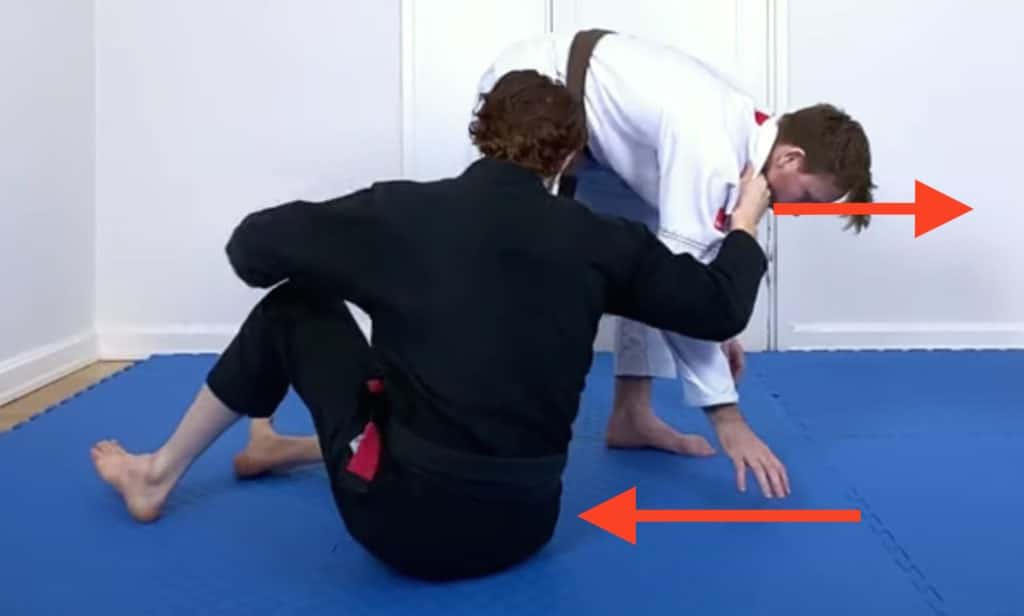
Now without the slightest pause do 3 things at once: 1) scoot your hips forward to the outside of his right leg, 2) pull his lapel foward past your body, and 3) begin to turn in and face his leg.
If you used your right foot to block his shin then he will definitely be airborne right now. If you missed his foot (or decided not to use that option) then he’ll still be very much off balance and it’s entirely likely he’ll fall to all fours in front of you.
At this stage your legs will be on either side of his right leg.
5, Wrap His Leg and Stiffarm His Neck
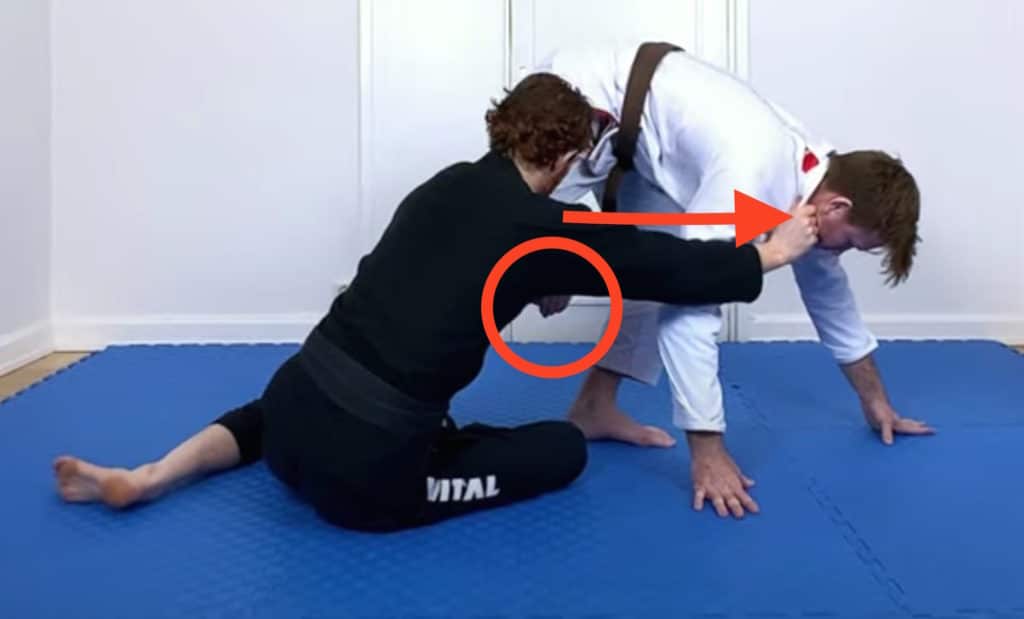
Continue turning and hug his right leg with your left arm. This sets up the single leg takedown.
Push his head and neck area with your right hand, still controlling his collar if you’re able to. This keeps him off balance and his weight forward which makes it much easier to stand up in step 6.
6, Start Coming Up to Your Feet
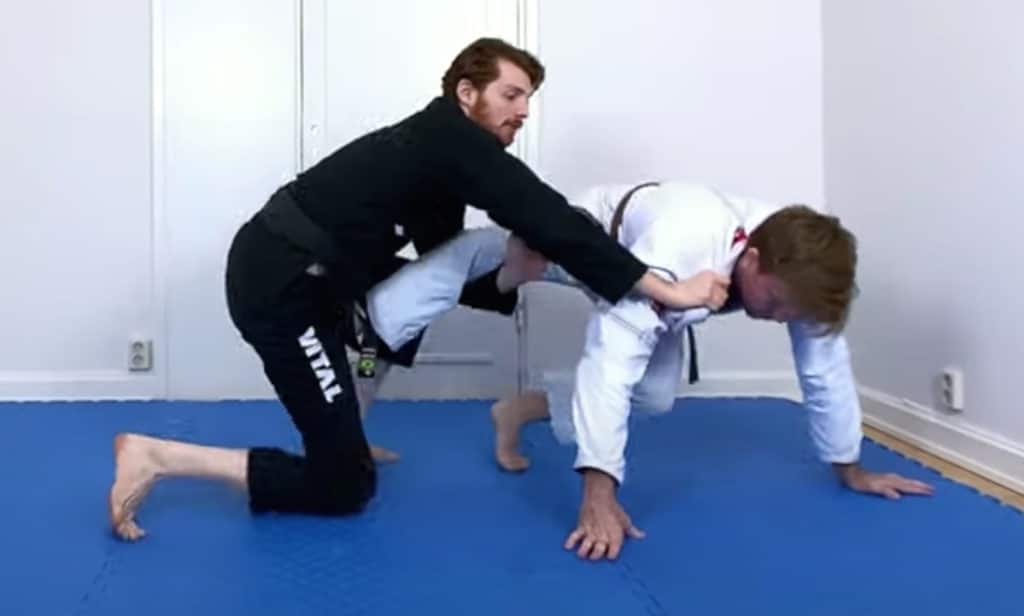
Often when you hit your opponent with a hard collar drag he’ll flop down to the mat beside you, basically giving you the sweep.
Other times you’ll need to ‘encourage’ him to fall down. To sweep a stubborn opponent keep his leg elevated with your left arm and continue stiffarming him with your right. Come up onto your left leg and continue to drive him forward.
7, Finish the Takedown
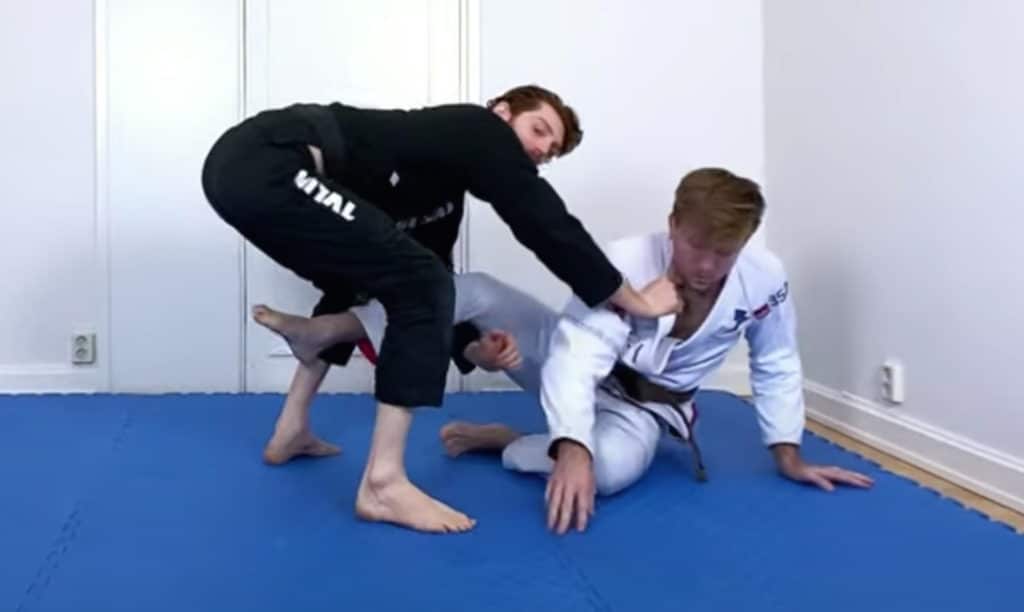
At this point, 9 times out of 10, your opponent will be so offbalance that he will concede the bottom position and turn to put you back into guard. This is to stop you from capitalising on his very disadvantageous position by taking his back or forcing him to the ground without his legs in play.
Occasionally you’ll have to fight for the single leg takedown to actually get him down to the ground. Learn an easy way to finish the single leg in the gi here.
It’s incredibly hard to resist a powerful collar drag, so it’s definitely something you should have in your BJJ arsenal.
Speed Kills!
I know I posted this GIF at the very top of this post but I want to post it one more time.
Take a close look…

The collar drag from the open guard with Jon Thomas
Notice the speed and commitment Jon Thomas uses when he goes for this attack. It’s an all or nothing situation.
If you hold the initial cross collar grip for too long then a skilled opponent can attack you with a flying armbar or flying triangle. And if you try to pull him forward in slow motion then your opponent can simply walk around you, possibly even exposing your back.
But if you do it fast and with intent then you’ll probably end up on top.
It’s a great attack proven countless times at the highest level of BJJ competition.
Much More Jon Thomas Here!
 Jon Thomas’s detailed breakdowns of techniques and strategies on his Youtube and Instagram channels have rightly earned him a very dedicated following.
Jon Thomas’s detailed breakdowns of techniques and strategies on his Youtube and Instagram channels have rightly earned him a very dedicated following.
That’s because he teaches gamechanging moves in an incredibly precise and to the point way.
So I’m thrilled to announce that I’ve collaborated with Jon to release a brand new Grapplearts instructional called “The Open Guard System.”
This DVD and online streaming format instructional is a complete method for mastering the open guard in BJJ. You’ll get the strategies and techniques you need to dominate a match from before the first contact is made all the way through to choking him silly.
You can also get the same instructional in app format for your Apple or Android device on the Grapplearts BJJ Master App which is free to download (more info here).
Cheers!
Stephan


